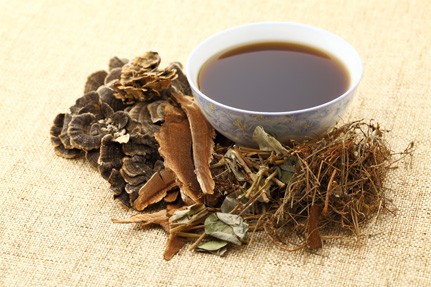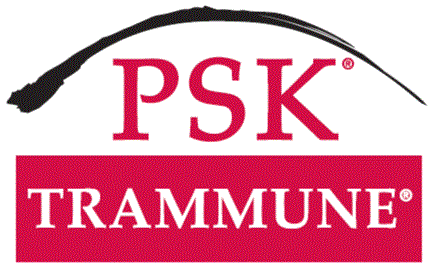TRAMETES VERSICOLOR – Medicinal Mushroom History
The Trametes versicolor mushroom is also known as: Coriolus versicolor, Yun Zhi (Cloud Mushroom), Turkey Tail, Kawaratake (Mushroom by the River) and Polystictus Versicolor.
The Trametes versicolor mushroom has a long history of medicinal usage, dating back at least two millennia. The mushrooms gathered in the wild, grow as dense and overlapping clusters of fruiting bodies on dead or living trees. The plush brownish mushroom caps have a velvety surface with a distinctive pattern of wavy bands of dark and light colour. Trametes versicolor is also found throughout the cool wooded temperate regions of Europe and North America. It belongs to a class of traditionally used mushrooms known as Basidiomycetes. Of the 20,000 species recorded, Trametes is the best known commercially for its medicinal applications. 
Historically, Chinese and Japanese herbalists harvest the fruiting bodies of the mushrooms, which are then dried, ground to a powder and made into a tea. This simple hot water decoction or tea according to Chinese Pharmacopeias, was used to dispel ‘dampness’ (meaning to deal with liquids and oils that are not adequately metabolised thus becoming toxic), reduce phlegm, treat respiratory tract infection and support liver health.
Based on the reputation of the mushroom’s wide ranging therapeutic benefits scientists worldwide began to conduct controlled basic and clinical research (over 400 published studies) on hot water extracts from Trametes versicolor. The researches have found that the main therapeutic ingredients in the extracts of Trametes versicolor mushroom are complex polysaccharides including those bound to proteins that are intricately linked to the immune system enhancement by the mushroom.
These mixtures of polysaccharide compounds are non-toxic and are believed to be responsible for many of the the mushroom’s therapeutic properties. Continued research led to further discoveries that isolated a major protein-polysaccharide component that belongs to a class of compounds known as beta-glucans. The major protein-polysaccharide component after undergoing extensive research and development has become known as PSK.
The health benefits of Trametes versicolor extract (Coriolus versicolor, Yunzhi, Kawaratake, Turkey Tail) is well known in Asia and it has been used successfully for many years. It is only now that the rest of the world is starting ‘catch up’ and learn what they have known about for decades.
For more detailed information request a PSK Information Pack – info@psktrammune.com.au
References: Compendium of Materia Medica, AD1590, Vol 28, pp19-21 Reprint Edition China Press Beijing – Lindequist U, Niedermeyer TH, Julich TH (2005). The Pharmacoligical potential of mushrooms. Evidence-based Complementary and Alternative Medicine 2 (3):285-299 – Tsukagoshi S, Hashimoto Y, Fujii G, Kobayashi H, Nomoto K, Orita K. Krestin (PSK). Cancer Treatment Reviews. 1984; 11:131-155. – Machara Y, Tsujitani S, Sacki H et al. (2012). Biological mechanism and clinical effect of protein-bound polysaccharide K: review of development and future perspecitives. Surg Today. 42:8-28. – Yamakido M, Ishioka S, Matsuzaka S et al. (1984) Changes in human immunological parameters by PSK administration. Hiroshima J Med Sciences. 33(4);793-800. – Kato M, Hirose K, Hakzaki M, Ohno M et al 1995. Induction of gene expression for immunomodulating cytokines in peripheral blood mononuclear cells in response to orally administered PSK, an immunomodulation protein-bound polysaccharide. Cancer Immunol Immunother 1995; 40: 152-156. CIMER – Coriolus versicolor Detailed Scientific Review – MD Anderson Cancer Centre (c) 2011 The University of Texas MD Anderson Cancer Centre.



